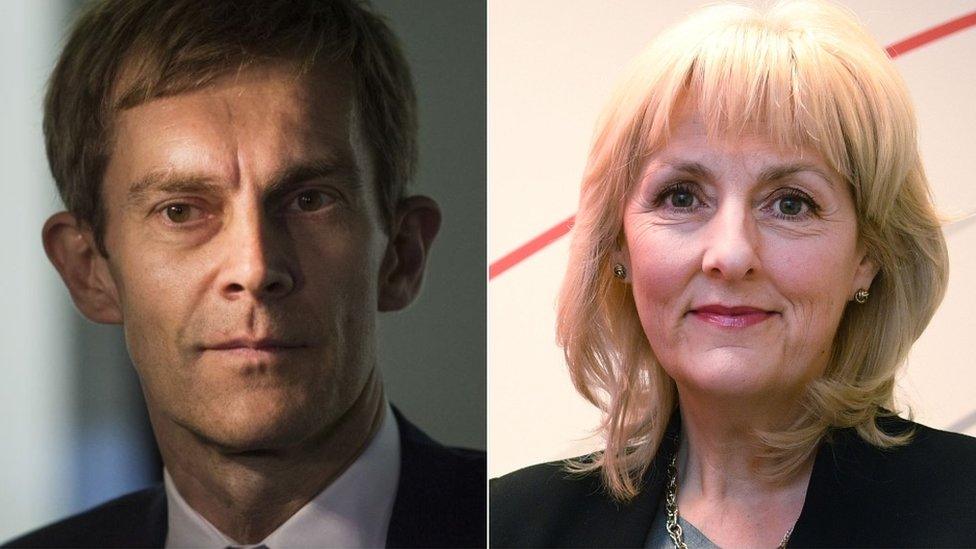Labour anti-Semitism: Ruling body backs Corbyn expulsions plan
- Published
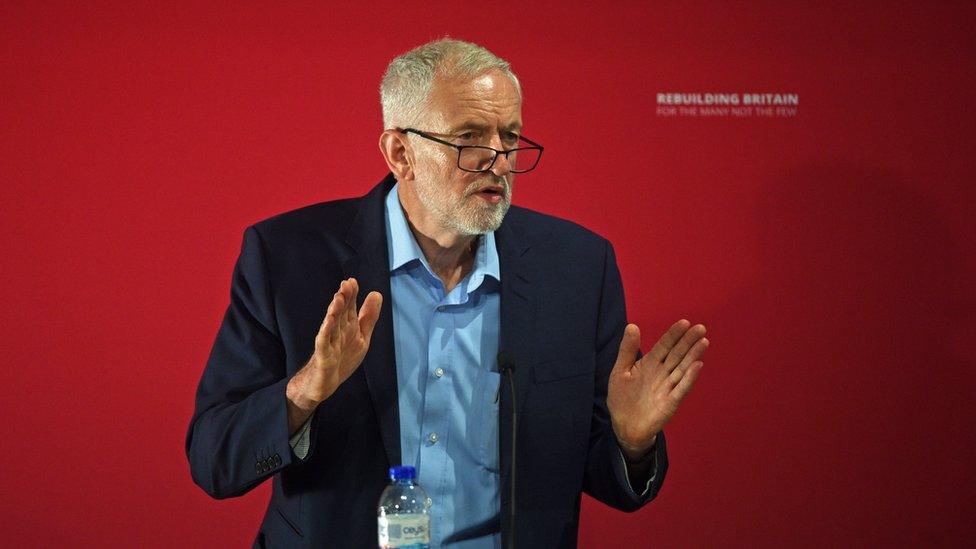
Labour's ruling body has backed a plan endorsed by Jeremy Corbyn to "fast-track" expulsions of members in the most serious anti-Semitism cases.
It agreed that a new internal panel should be set up to take "rapid action" against the worst offenders.
New "legally robust rules" will be presented to party members for approval at Labour's conference in September.
But some MPs are angry that a separate plan for a fully independent disciplinary process was not adopted.
At Tuesday's meeting of the National Executive Committee, deputy leader Tom Watson withdrew a motion calling for the Bar Council, or another similar legal body, to appoint an independent person to devise a new complaints scheme.
He backed down after it was clear the motion did not command enough support.
A Labour source said the party would now bring forward proposals for "independent oversight" of its processes to increase transparency, without giving any further details.
But Labour MP Wes Streeting said the plans approved by the NEC "don't carry the support of the mainstream Jewish community", while colleague Ruth Smeeth said they were "not good enough".
At a meeting of his shadow cabinet on Monday, Mr Corbyn conceded it was taking too long to deal with complaints against members and further action was needed.
He threw his weight behind a new system in which the most serious cases would be referred to a special panel of the NEC. Its members, including Labour's general secretary Jennie Formby, would then have the power to expel an individual.
In a statement, the NEC said it had backed Mr Corbyn's proposal to "reform our procedures to allow fast-track expulsions in the most serious cases".
"This proposal will be further developed so that the NEC can finalise the details of a rule change that is fair and legally robust, ahead of conference," it said.
"Anti-Semitism complaints relate to a small minority of members, but one anti-Semite is one too many."
Shadow cabinet
Critics of the current complaints process have pointed to the length of time cases are taking to resolve and the relatively low number of expulsions.
Some 625 complaints were made about members in the first six months of 2019. In the same period, eight cases resulted in expulsions and three in extended suspensions, while another 12 members left the party after their cases were referred to the party's National Constitutional Committee.
Mr Corbyn's plan and an alternative proposal were presented to the shadow cabinet on Monday, which released a statement afterwards giving its backing.
However, shadow ministers did also say they supported a proposal to introduce independent oversight of the complaints process.
Although this was not put to a vote at the NEC, it is understood Mr Watson was clear in Tuesday's meeting that the only test of success for any rule change was whether it received the support of the Jewish community.
Ms Smeeth said the NEC had chosen the wrong course.
"There is still no independence. In fact, arguably, political power over anti-Semitism cases is going to be consolidated by political supporters of Jeremy Corbyn," she said.
"The only way that people like me, and actually people who are accused of anti-Semitism, will have any faith in the process is if it's not seen to be driven by party political or different factions of the Labour Party."
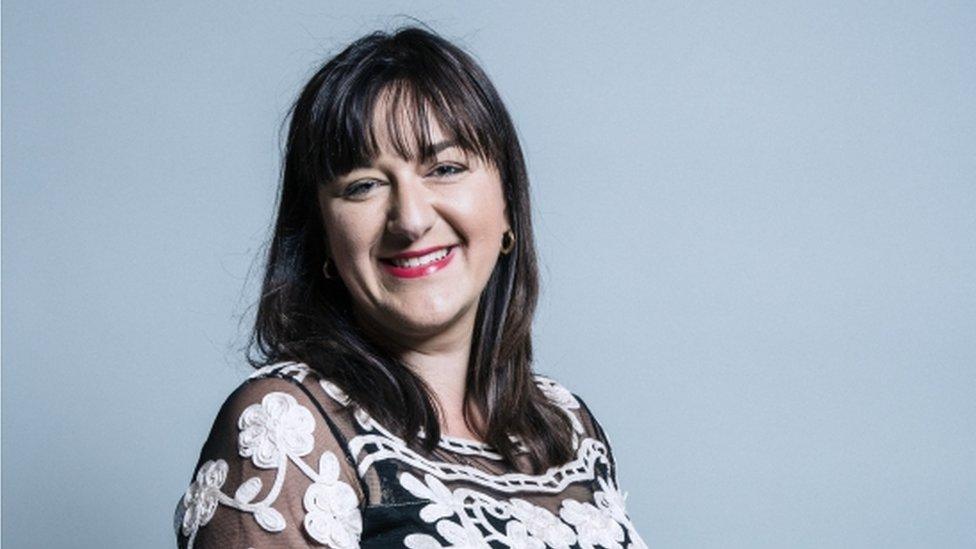
Labour MP Ruth Smeeth said Mr Corbyn's proposals "simply aren't good enough"
Earlier this month, the BBC's Panorama revealed claims from a number of former party officials that some of Mr Corbyn's closest allies tried to interfere in disciplinary processes involving allegations of anti-Semitism.
Labour has rejected claims of interference in its disciplinary processes and described the Panorama programme as "seriously inaccurate" and "politically one-sided".
But Mike Katz, the chair of the Jewish Labour Movement, said he did not trust the NEC to act impartially.
"Nothing short of a fully independent process, first asked for by the Jewish community way back in April 2018, is even going to begin to suggest that the party leadership really cares about tackling institutional anti-Jewish racism," he said.
Meanwhile, Theresa May appointed Labour MP John Mann as a government adviser on anti-Semitism, the day before she was due to step down as PM.
No. 10 said Mr Mann would provide the Ministry for Housing, Communities and Local Government with independent advice on tackling the problem.
Mr Mann chairs a cross-party parliamentary group on anti-Semitism in Parliament and has been a frequent critic of Mr Corbyn's handling of the issue.
The government has also appointed Imam Qari Asim, deputy chair of the Anti-Muslim Hatred Working Group, to lead a process to establish a definition of Islamophobia.

The latest figures on anti-Semitism complaints
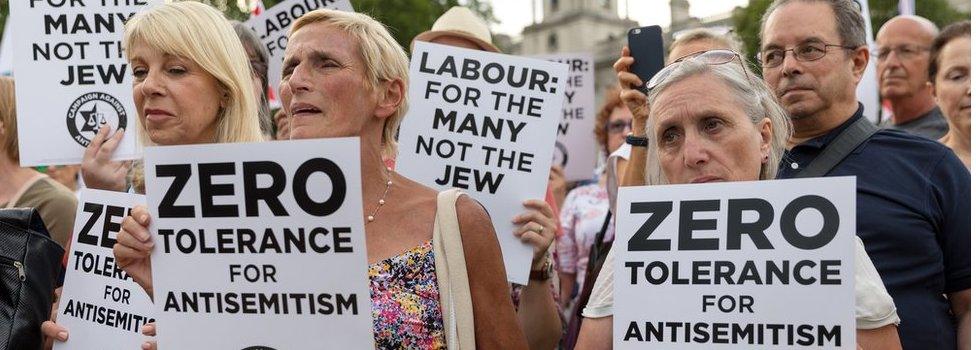
Between January and June 2019, Labour received 625 complaints about members relating to anti-Semitism, and a further 658 complaints about people who weren't in the party.
After six NEC meetings in the same period, the committee referred 97 members to the NCC over their cases, handed out 41 official warnings and a further 49 "reminders of conduct".
And over those six months, the NCC expelled eight people, gave out three extended suspensions, and issued four warnings.
In more than 250 cases there was no evidence, or insufficient evidence, of a breach of party rules to proceed with an investigation.
A Labour spokesman said publishing the figures showed the party's "commitment to transparency in its efforts to root out bigotry and racism".
He added: "These figures provide a complete and accurate picture and demonstrate that we are taking decisive and robust action against anti-Semitism."

- Published18 November 2020
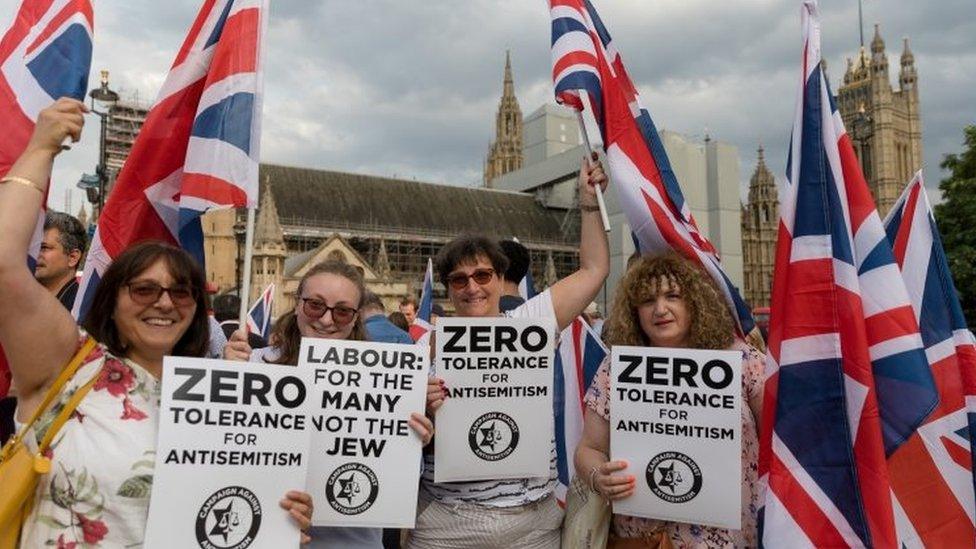
- Published10 July 2019
